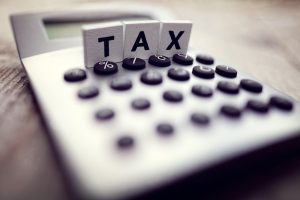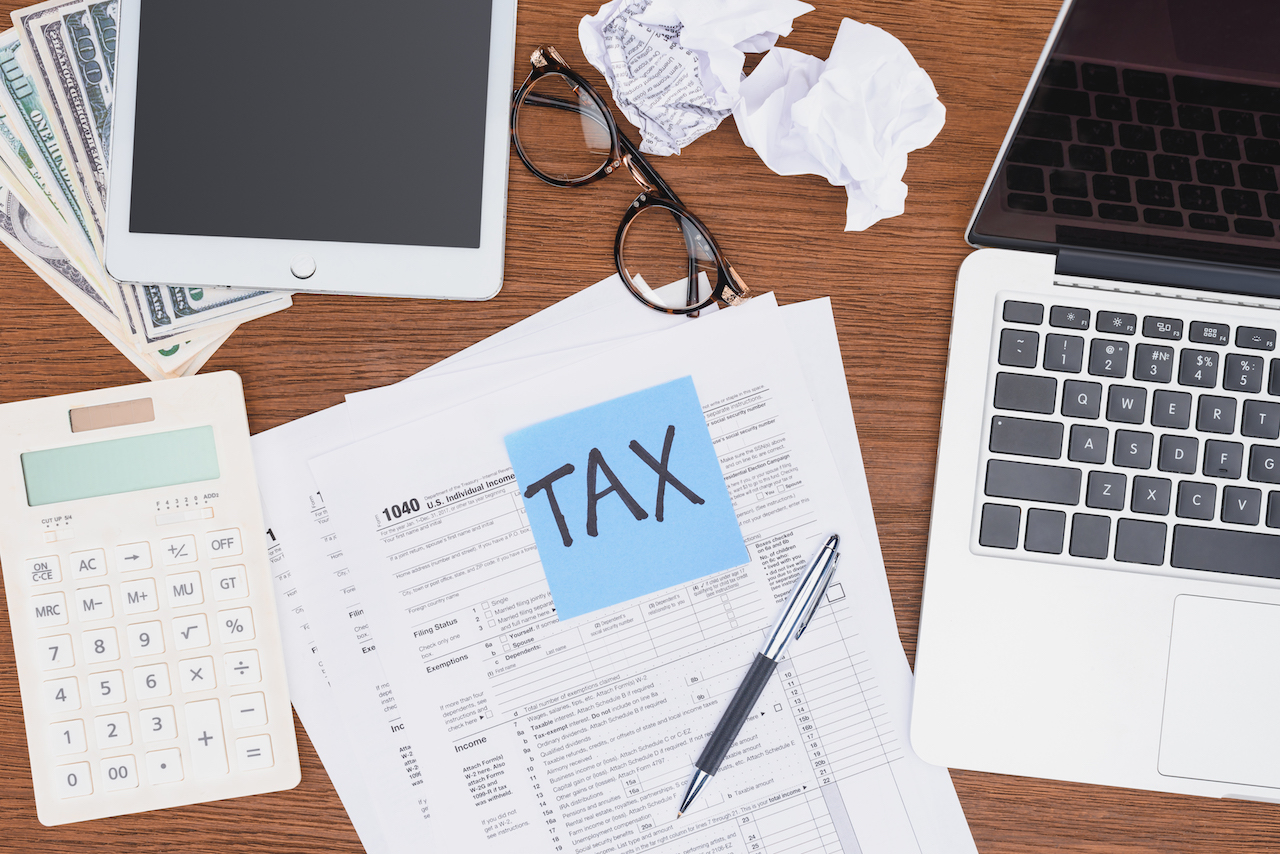If you’ve recently completed a tax return, you might soon have to pay underpaid tax to HMRC.
In this post, we’ll explain what underpaid tax is, before exploring some of the ways you can pay HMRC the money you owe.

What is Underpaid Tax?
Your personal allowance is the amount of money you can make in a year before HMRC taxes you. In the 2020-2021 tax year, your annual personal allowance is £12,500. Any money you make beyond £12,500 a year is known as your taxable income. HMRC will tax anything you make above this amount at a set rate that varies according to your circumstances. Check the government’s site for a complete guide to personal allowance and tax rates.
If you don’t pay enough tax on your taxable income above your personal allowance, HMRC declares that you’ve underpaid tax. You’ll then have to pay back HMRC what you owe.
Why Have I Underpaid Tax?
There are many reasons why you might have underpaid tax. It all depends on your personal circumstances. Complicated employment or different income streams can lead to issues in HMRC taking the right amount of tax at source.
Wrong Tax Code in a New Job
If you recently started a new job, you might have been on the wrong tax code at the start of your employment. Even if you’ve been in the job for a while, it’s still possible to get assigned the wrong tax code for one reason or another. Multiple pension pots can also cause issues here.
Calculating Tax with Multiple Sources of Income
If you’re a self-employed freelancer or contractor, you probably have multiple sources of income. The more sources of income you have to declare, the more complicated your self-assessment tax return gets. If you include allowable expenses, things will get even more complicated. It’s very easy for you to make a mistake when submitting your return. HMRC might also make mistakes when doing your tax calculation.
Human Error
Most of the time, underpaid tax is down to human error. If you’re an employee, you might underpay tax due to an error made by your employer’s finance department, or by your pension provider. If you’re self-employed, you might hire an accountant to sort out your finances for you. They too might make a mistake, which could result in underpaid tax.
How to Pay Underpaid Tax to HMRC
There are multiple ways to pay underpaid tax to HMRC.
If You’re an Employee
In some cases, if you’ve underpaid tax, HMRC will collect the money you owe over the course of the next year by changing your tax code. HMRC does this automatically. They won’t tell you about it, which can make it confusing if you suddenly find that your monthly pay is lower than usual.
In some circumstances, they might request the money from you instead. This might happen if you owe a particularly large amount. It might also happen if you finish one job and start another, but you get paid by both in the same month.
In these cases, HMRC will send you a P800 “Simple Assessment” form. This will show your tax calculation, explain why you’ve underpaid tax, and include instructions on how to pay.
If You’re Self-Employed
If you’re self-employed, HMRC won’t be able to collect your underpaid tax through your salary by changing your tax code. But they won’t send you a P800 either. Instead, they’ll simply adjust your tax bill to account for the underpaid tax you owe.
How Long Do You Have to Pay Underpaid Tax?
If you’re an employee, the deadline for paying underpaid tax is usually the 31st January in the following financial year.
And if you can’t pay the entire amount in one go, then they might let you pay in instalments. Though if they’re collecting the underpaid tax through your salary, then you don’t need to do anything. Usually, they’ll spread your repayment over the course of an entire tax year, so you shouldn’t take too much of a financial hit.
If you’re self-employed, HMRC will simply adjust your tax bill to include your underpaid tax. So you’ll pay your underpaid tax at the same time as you pay the rest of your self-assessment tax bill. Again, you should be able to request to pay in instalments if you can’t pay the full amount in one go.
How to Challenge HMRC About Underpaid Tax
If you think there’s been a mistake, first, use HMRC’s online tax checker tool to work out how much tax you should have paid in a year. Make sure you have all the information you need first. If you’re an employee, you’ll need your P60, some payslips, or bank statements. If you’re self-employed, you’ll need invoices, receipts and expense forms.
So has there been a mistake? If you’re an employee, you can contact HMRC, even if you’re not quite sure who’s responsible for the mistake. Again, make sure you have as much information as possible to hand when you contact HMRC.
If you got a P800 Simple Assessment form, there’ll be details on the form itself about appealing to HMRC. Act quickly, though – you only have 60 days to appeal after you receive your P800!
If you’re self-employed and you think your tax calculation is wrong, there are multiple ways to contact HMRC for help and support.
Support for the Self-Employed
If you’re self-employed, underpaid tax is just one of the problems you might be facing if there’s any confusion with your tax calculation. You might also become the target of a HMRC investigation.
HMRC investigations can be very costly and time-consuming, but insurance can cover your legal expenses. That way, no matter what happens, you’ll be able to continue trading.
At Tapoly, we specialise in bespoke insurance packages specifically designed for self-employed workers. We offer legal expense insurance as an add-on to our self-employed professional indemnity insurance policies. Get all the cover you need for as little as 35p a day, with no hidden fees.
If you have any questions or would like to discuss your options please contact our Tapoly team at info@tapoly.com, call our help line on +44(0)2078460108 or try our chat on our website.

